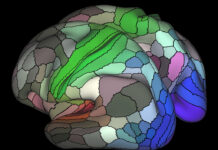Review Finds Link Between Recession and Mental Health Issues
A literature review published in BMC Public Health by researchers from Portugal and the Czech Republic summarizes results from 101 studies investigating the effect...
Meta-Analysis Finds Exercise Improves Cognition in Individuals with Schizophrenia
A new review, published in Schizophrenia Bulletin, examines the effects of exercise on cognition in individuals diagnosed with 'schizophrenia.' The results of the meta-analysis...
Review Examines Complementary Approaches for Pain Conditions
A review published in Mayo Clinic Proceedings used U.S.-based clinical trial evidence to examine the efficacy of complementary health approaches for chronic pain management....
New Study Raises Doubts About fMRI Neuroimaging Research
More than forty thousand papers have been published using functional magnetic resonance imaging (fMRI) technology to explore the brain. A new analysis of the common...
Financial Difficulties Facing College Students Lead to Mental Health Issues
A new study published open-access this month in Community Mental Health Journal finds that the increased financial difficulties facing college students lead to greater...
Fighting For Change: An Epiphany From Inside the “Movement”
I am a person labeled with “severe and persistent mental illness,” and so I have been trying to break the cycle of oppression that comes with a label like that. At the same time, I am trying to find ways to heal and to accept things about myself that are different from others, while also seeking to raise up my brothers and sisters in this desolate and dark place. This morning, I had an epiphany upon awakening. While it's hard to put into words, it feel's vital, and I want to try and get it down.
Epilepsy Drugs Can Induce Psychosis in Some Patients, Study Finds
In this month’s issue of the journal Brain a new study investigates whether the drugs prescribed to control seizures can increase the risk of...
Not So Rare But Rarely Diagnosed: From Demonic Possession to Anti-NMDA Receptor Encephalitis
Throughout the ages, convulsions, contortions of the body and face, including the tongue, super-human strength, catatonic periods, long periods of wakefulness or sleep, insensitivity to pain, speaking in tongues, and a predilection for self-injurious behaviours have all been offered as physical evidence of possession. The modern day interpretation, however, comes with a plot twist befitting a media spectacle. There is growing consensus in the medical community that many prior accounts of “demonic possession” may have represented original accounts of what is now broadly known as autoimmune encephalitis.
Sociologist Explores the DSM-5’s Failed Attempt at Validity
In a new article for the journal Social Science & Medicine, sociologist Owen Whooley investigates how the DSM-5 creators failed in their attempt to...
“Tylenol in Pregnancy Tied to Behavior Problems in Children”
For the New York Times’ Well blog, Nicholas Bakalar reports on a new study, in JAMA Pediatrics, that found that using acetaminophen (Tylenol) during...
Neuroscientists Consider the Effect of the Gut on the Brain
A review article published in the International Journal of Neuropsychopharmacology summarizes the latest research on the role that microbiota in the gut play in...
Life Lessons and Trauma Informed Care
My first real introduction to the world of madness and “mental illness” was when I was 21 years old and I left home to start my mental health nurse training. Reflecting on my own experiences has led me to consider how the trauma of participating in the psychiatric system can affect the way we care for others.
Lancet Study Questions Safety of Locked Psychiatric Wards
A new study published in Lancet Psychiatry challenges the common practice of locking psychiatric wards to prevent patients from attempting suicide or leaving against...
Systemic Racism Erodes Mental Health, Study Finds
New research out of the United Kingdom examines the cumulative impact of systemic racism on the mental health of minorities over time. The study,...
“What if Addiction Is Not a Disease?”
For The Chronicle of Higher Education, David Schimke reports on how debate erupted at a substance abuse conference over whether or not addiction should...
Psychologists Suggest Mental Health is Based on Environment
In a new review for Molecular Psychiatry, psychologists Elaine Fox and Chris Beevers examine the connection between mental health genetics and cognitive biases. “'If...
“The Drug Docs”
In part six of a seven-part “Drugging Our Kids” series by The Mercury News, Karen de Sa and Tracy Seipel unveil California’s top foster...
Centering Lived Experience
Lately, after a number of discussions, we have been changing our practices around the issue of labels. No longer do we give a diagnosis at presentations. We place the young person’s story, as told to us, front and center. People listening rarely ask, “What is their diagnosis?” now that lived experiences are central. We are providing a sense of their struggles. We are trying.
Researchers Investigate Antidepressant-Induced Suicidal Ideation
An increase in suicidal thoughts is a known and serious side-effect for various types of antidepressants. Recent studies suggest that there may be some...
Violence Caused by Antidepressants: An Update after Munich
The media is now reporting details about the 18-year-old who shot and killed nine and wounded many others before killing himself on July 22 in Munich. My clinical and forensic experience leads to a distinction among people who murder under the influence of psychiatric drugs. Those who kill only one or two people, or close family members, often have little or no history of mental disturbance and violent tendencies. The drug itself seems like the sole cause of the violent outburst. On the other hand, most of those who commit mass violence while taking psychiatric drugs often have a long history of mental disturbance and sometimes violence. For these people, the mental health system seems to have provoked increasing violence without recognizing the danger.
“Why are Doctors Plagued by Depression and Suicide?”
For STAT news, Judith Graham reports on the escalating crisis of depression, burnout, and suicide among physicians. “Male doctors are 1.4 times more likely to kill...
“With Coercive Control, the Abuse Is Psychological”
“Coercive control describes an ongoing and multipronged strategy, with tactics that include manipulation, humiliation, isolation, financial abuse, stalking, gaslighting and sometimes physical or sexual...
“Has Psychology Sold Out to Psychiatry?”
On his "From Insults to Respect" blog, psychologist Jeff Rubin examines the APA’s participation in the labeling practices promoted by psychiatry. “It just so...
Foster Youths Meet Psychiatry: First – Do No pHarm
When a foster youth encounters a Psychiatrist, chances are high that s/he will get medicated. Traumatized foster youth are often prescribed powerful psychotropics due to exhibiting a wide variety of “normal reactions to abnormal events,” such as despair, agitation, anxiety and self-harm. The practice has been well documented; foster children are prescribed psychotropics at a 2.7 to 4.5 times higher rate than non-foster youth. The National Center for Youth Law aptly summarizes the problem as; too many (25% of foster youth medicated), too soon (300 children under the age of 5 in California are given psychotropics annually) too much (adult dosages) and for too long (no planning or reviews for possible discontinuation).
“‘Acting Out’ or Suffering from Trauma?”
Eve Troeh and Mallory Falk explore the use of trauma informed curriculum in the New Orleans school system following Hurricane Katrina. “Consider the everyday...















